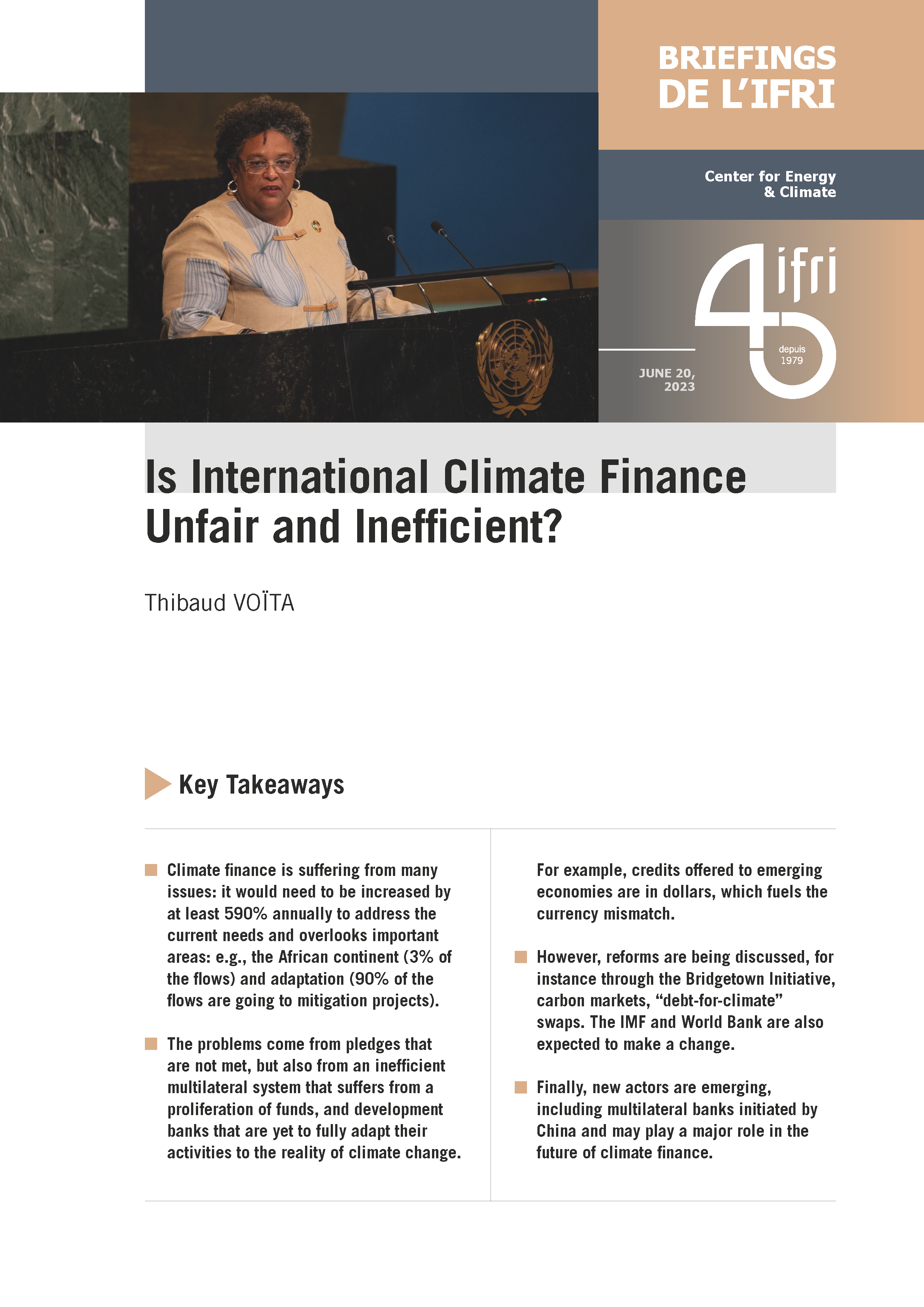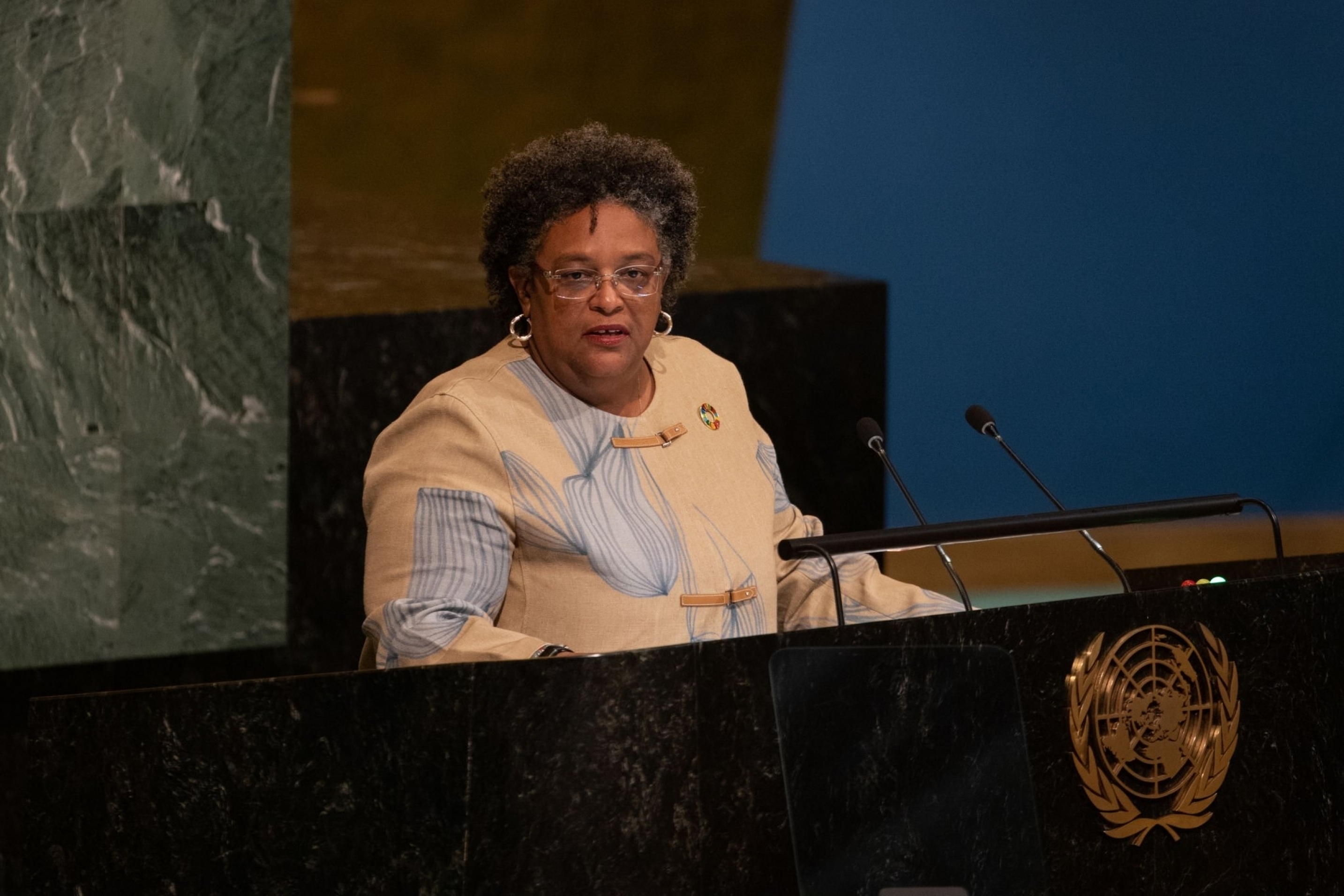Is International Climate Finance Unfair and Inefficient?

Finance is arguably the most sensitive climate negotiation topic. Different studies have shown that rich countries emit the majority of greenhouse gas (GHG) emissions, while the climate footprint of the poorest countries is much more limited.

In addition, the countries that emit the less often turn out to be among the most vulnerable to climate change, with high needs in terms of adaptation finance. According to some analysis, the 46 least-developed countries suffer from a high risk of loss and damage, and the countries that are the least at risk are in Europe. Therefore, developing countries are demanding contributions from the developed world to address their climate finance needs (both in terms of mitigation and adaptation). These demands have been somehow met with a pledge made at COP 15 in 2009, where developed countries announced a yearly contribution of 100 billion dollars (USD) by 2020. However, this pledge has not been honored.
Meanwhile, climate change is accelerating and, as a result, countries’ needs in terms of adaptation are increasing, as well as their loss and damage. The finance gap is widening and though the 100 USD billion pledge is expected to be achieved in 2023, analysis from the think tank Climate Policy Initiative (CPI) shows that it will not be enough to address the current needs. According to their analysis, the current flows need to be increased by at least 590% annually. This briefing will show that, in addition, climate finance is not accessible to the poorest and therefore increases inequalities and the exclusion of the most vulnerable countries. The Prime Minister of Barbados, Ms. Mia Motley, complains that the “international financial system […] is broken, outdated, infested with short-termism and downright unfair.

Available in:
Regions and themes
ISBN / ISSN
Share
Download the full analysis
This page contains only a summary of our work. If you would like to have access to all the information from our research on the subject, you can download the full version in PDF format.
Is International Climate Finance Unfair and Inefficient?
Related centers and programs
Discover our other research centers and programsFind out more
Discover all our analysesAI, Data Centers and Energy Demand: Reassessing and Exploring the Trends
The information and communication technologies sector today accounts for 9% of global electricity consumption, data centers for 1-1.3%, and artificial intelligence (AI) for less than 0.2%. The growing energy demands of cloud services first, and now AI workloads (10% of today’s data centers electricity demand), have exacerbated this trend. In the future, hyperscale data centers will gain shares amongst all kinds of data centers and AI will probably account for around 20% of data centers electricity demand by 2030.
Unlocking India’s Energy Transition: Addressing Grid Flexibility Challenges and Solutions
India is rapidly scaling up its renewable energy (RE) capacity, adding 15–20 GW annually, but the ambitious goal of 500 GW of non-fossil capacity by 2030 is at risk unless the pace accelerates.
Europe’s Black Mass Evasion: From Black Box to Strategic Recycling
EV batteries recycling is a building block for boosting the European Union (EU)’s strategic autonomy in the field of critical raw minerals (CRM) value chains. Yet, recent evolutions in the European EV value chain, marked by cancellations or postponements of projects, are raising the alarm on the prospects of the battery recycling industry in Europe.

The New Geopolitics of Energy
Following the dramatic floods in Valencia, and as COP29 opens in Baku, climate change is forcing us to closely reexamine the pace—and the stumbling blocks—of the energy transition.







